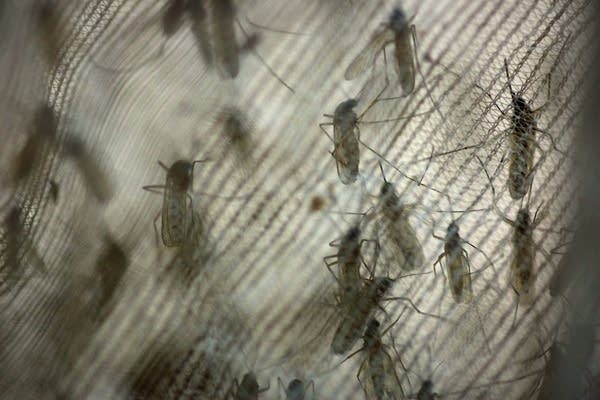Slow year for West Nile, but that could change

A cooler, wetter second half of the summer in Minnesota has meant fewer cases of the West Nile virus than last year.
But state health officials say people should still take precautions heading into fall when the risk of contracting the virus from a mosquito is higher.
Elizabeth Schiffman, epidemiologist with the Minnesota Department of Health, said there have been 17 human cases of West Nile so far this year, down from 83 cases last year.
"Usually years where weather is warmer and a little bit drier are years where we tend to see a lot more West Nile activity, and so a lot more cases in humans in those years," Schiffman said.
Create a More Connected Minnesota
MPR News is your trusted resource for the news you need. With your support, MPR News brings accessible, courageous journalism and authentic conversation to everyone - free of paywalls and barriers. Your gift makes a difference.
It takes some time for the transmission of the virus between birds and mosquitoes to ramp up, which is why human cases tend to be more common later in the summer, Schiffman said.
Western and central Minnesota are the highest-risk areas of the state for West Nile because the mosquito that carries the virus prefers open agricultural land.
The mosquitoes tend to be most active early in the morning and in the evening, which is also when people are often outside doing yard work, gardening or other outdoor activity, Schiffman said.
"We definitely recommend people putting on some repellant if you're going to be outside for any length of time, because that really is the best way to keep yourself safe from getting bitten by an infected mosquito," she said.
Most people who contract the West Nile virus never get sick. Others report fever, headaches or other flu-like symptoms.
Most of the human cases in Minnesota this year were relatively mild, Schiffman said, and none were fatal.